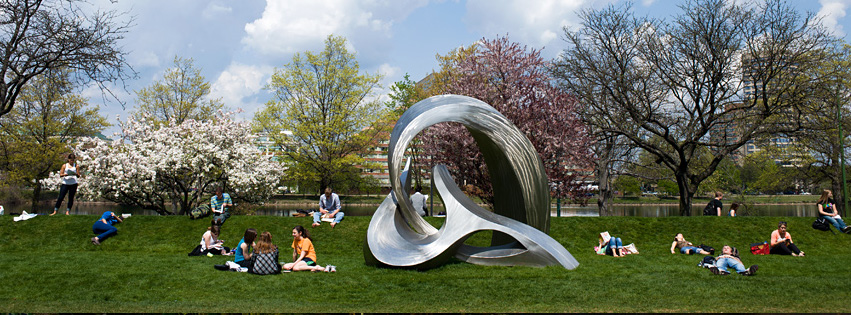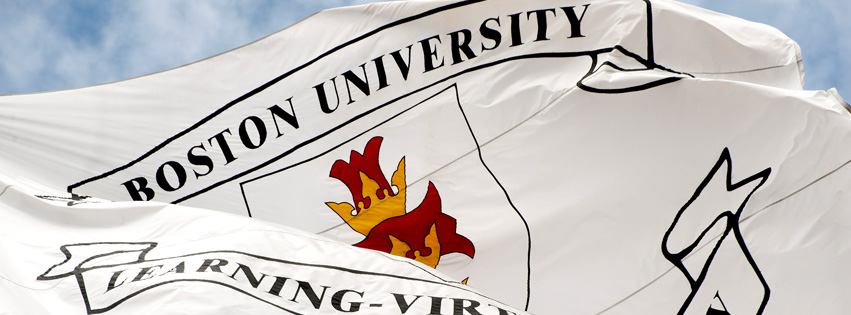Patent Policy/Charles River Campus
*Note: Effective July 1, 2017, the Charles River Campus Patent Policy and the Medical Campus Patent Policy, have been replaced by the Intellectual Property Policy.
Preamble
The patent policy outlined herein is the Policy of the Trustees of Boston University (the “University”). The University recognizes that patentable inventions may be made in the course of research sponsored by the University and/or by others through the University. It is the policy of the University to maximize the benefits to the individual who makes such patentable inventions, to the University and to the general public, and thus to stimulate initiative in the faculty, staff, and employees of the University. The University recognizes that this may best be accomplished through patenting and licensing such inventions in a manner consistent with the public interest, and for such purpose the University hereby establishes the patent policy set forth herein. This Policy supersedes all prior patent policies and amendments thereto applicable to the Charles River Campus.
Patent Policy
In order to protect the public good and the University, and in order to fulfill obligations to research sponsors, the University shall claim equity in all discoveries and its right to acquire the title to and control of such discoveries where the discoveries are made by faculty, staff, employees, or students (including all types of trainees or postgraduate fellows) working on or arising from programs supported in whole or in part by funds, space, personnel, or facilities provided by the University.
When a discovery is made by an inventor outside of any program conducted by the University, and the inventor can demonstrate that the University did not provide or administer significant funds, space, personnel, or facilities for work leading to the discovery, the discovery shall remain the exclusive property of the inventor or his/her sponsor. The University shall not ordinarily consider provision of office, classroom, or library facilities as constituting significant use of University funds, space, personnel, or facilities. For purposes of this Policy, the term “Inventor” shall include all individuals who participated in and signed a disclosure statement respecting a discovery or invention.
3. When necessary, the University Committee on Inventions and Discoveries (“Committee”) shall decide whether an invention or discovery should be classified under Paragraph 1 or Paragraph 2 of this section. Persons or entities claiming a right to receive royalty interests under the provisions of the Patent Administration section below may appeal the decision of the Committee to the President of the University. The President shall recommend final action to the Trustees, whose decision shall be final.
Royalties
Where the University is entitled to equity in a discovery, the Inventor shall receive 30 percent of the net royalties accruing therefrom unless the University recommends a lesser share, which shall not be less than 15 percent, based upon relevant circumstances relating to the discovery. In the event that the University determines that such lesser share is appropriate, the University shall in its sole discretion designate the recipient or recipients of the percentage share by which the Inventor’s share has been reduced. The Office of Technology Development (OTD) of Boston University, exclusive agent for the administration of patents or discoveries made within the University, shall receive 45 percent of the net royalties (see the Patent Administration section). The remaining royalties from, and equities in, the invention shall be distributed to the School of the Inventor, or in the absence of a School’s being involved, the primary unit or entity of the University with which the Inventor works or is affiliated. Net royalties are defined as gross royalties less amounts granted by the University specifically for the invention or discovery process, and the costs of securing, protecting, preserving, and maintaining patents, and of licensing and marketing of the patent rights, or other costs or fees directly attributable to the inventions being licensed.
Disclosures
Because the securing of rights in discoveries and inventions depends on prompt and efficient patent application and administration, all faculty, staff, students, and employees of the University who make inventions or discoveries shall immediately disclose said inventions or discoveries to the OTD Patent Administrator and to the Inventor’s supervisor. This disclosure obligation shall apply to all inventions and discoveries, without regard to whether they fall under Paragraph 1 or Paragraph 2 above.
Patent Administration
OTD shall be the exclusive agent of the University for the administration of inventions and discoveries made within the University and covered under Paragraph 1. OTD shall present the disclosures to the Committee. Such report shall state whether OTD has determined that an invention or discovery will be developed by the University. The Committee shall consist of eleven voting members, at least a majority of whom shall be faculty members from the Schools and Colleges of the University. The members of the Committee and the Chairman of the Committee shall be designated by the President of the University. OTD shall render a written semiannual report to the Chairman of the Committee on the disposition and status of all inventions and discoveries submitted. OTD shall as promptly as practicable determine whether an invention or discovery shall be pursued by the University. If the Committee determines that OTD has not filed a patent application within one year after it has received a disclosure in respect of which the University is entitled to claim an interest, the Committee, in consultation with the Inventor, shall determine what other disposition, if any, shall be made of the invention or discovery and of its development.
Coverage
The Policy shall cover only discoveries and inventions that are patentable as the term is defined in The United States Code, as amended, or the laws of other countries where applications are filed.
Trustee Review
Any disputes that arise under this Policy that are not resolved by the Committee shall be referred to the President of the University, who shall recommend final action to the Trustees. The decision of the Trustees shall be final with respect to all disputes.
Employment Agreements
An appropriate form shall be signed by all faculty, staff, employees, and students working at the University providing for specific acceptance of the terms of this policy. Rights and obligations under this agreement shall survive any termination of enrollment or employment at the University.
Nothing herein contained is intended to grant or dispose of any right, title, and interest to any disclosure, idea, improvement, or invention, whether patentable or not, which has been supported or funded by outside parties who acquire rights to such disclosure, idea, improvement, and invention.
Consulting Agreements
The rights of the University under this policy, and the interests of sponsors under research grants or contracts, may not be abrogated or limited by consulting agreements or other contracts entered into between University students or employees and outside organizations or employers. University students and employees should inform outside employers of their obligations and commitments to the University under this policy. Such students and employees should ascertain that patent clauses in their agreements are not in conflict with their obligations to the University or this Policy Statement. Each student and employee should make his/her obligations to the University clear to those with whom such agreements may be made, and should ensure that they are provided with a current statement of University policy. Upon request, the University will provide a standard clause which may be inserted in a student’s or employee’s consulting agreement. This clause will put third parties on notice as to the University’s rights under this policy with respect to inventions and discoveries. In cases of conflict of interest, the University reserves the ultimate right to determine the final disposition of the rights and interests involved.
*Adopted, as amended, by the Trustees of Boston University, November 12, 1991. Medical campus faculty should contact the Office of Personnel for the medical campus patent policy statement and form.




